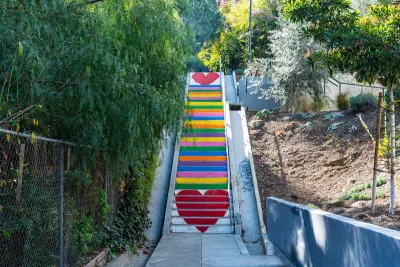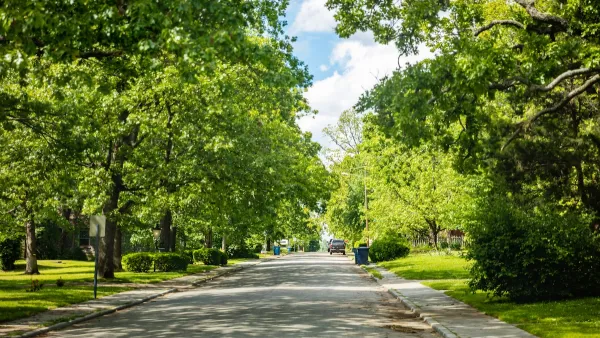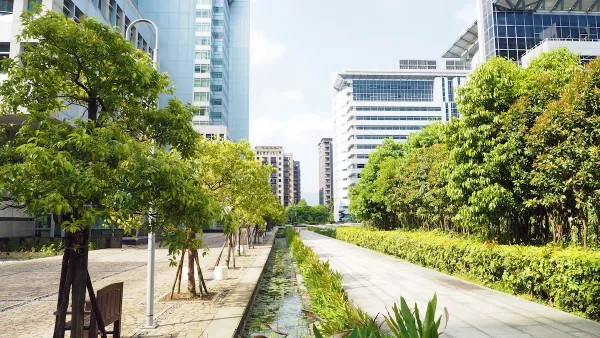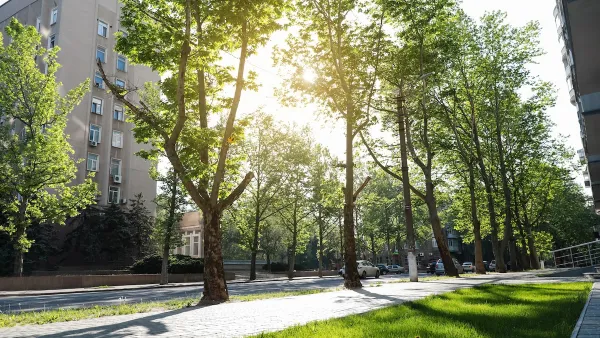The Los Angeles Urban Forest Equity Collective has developed an equity-centered tree-planting framework and toolkit to address historic underinvestment and mitigate extreme heat in vulnerable neighborhoods.

Trees play a critical role in mitigating extreme heat, a growing and deadly impact of climate change. Research suggests that increasing tree canopy in the most heat-vulnerable neighborhoods could save up to half of the lives lost to heat-related incidents. However, tree planting in Los Angeles faces challenges such as its extensive roadways, semi-arid climate, and socioeconomic disparities.
In response, UCLA researcher Edith de Guzman co-founded the Los Angeles Urban Forest Equity Collective, bringing together forestry experts, city officials, community organizations, and researchers to address the legacy of underinvestment in certain neighborhoods. The Collective recently published a decision-making framework and toolkit to advance urban forest equity and improve health outcomes through inclusive, practical solutions.
As reported by Mara Elana Burstein, the framework emphasizes equity-centered tree planting, featuring public engagement strategies co-developed with community organizations to ensure resident voices are prioritized. By rethinking traditional approaches, the Collective developed innovative strategies to "green" historically underserved neighborhoods that have lacked the resources to enjoy the environmental benefits seen in wealthier areas. Their work has produced actionable steps for municipal leaders, local organizations, and community members to overcome barriers to equitable tree planting.
As part of their efforts, the Collective introduced hyperlocal implementation strategies for Central Alameda and Sylmar, two Los Angeles neighborhoods with distinct challenges. By collaborating with residents and city officials, the team identified cooling solutions tailored to each area, from dense public housing in Central Alameda to the sprawling single-family homes of Sylmar. These examples showcase how the tools and framework can drive equitable urban greening and create healthier, more resilient communities.
FULL STORY: LCI co-develops decision-making framework and toolkit that centers equity in tree planting

National Parks Layoffs Will Cause Communities to Lose Billions
Thousands of essential park workers were laid off this week, just before the busy spring break season.

Retro-silient?: America’s First “Eco-burb,” The Woodlands Turns 50
A master-planned community north of Houston offers lessons on green infrastructure and resilient design, but falls short of its founder’s lofty affordability and walkability goals.

Delivering for America Plan Will Downgrade Mail Service in at Least 49.5 Percent of Zip Codes
Republican and Democrat lawmakers criticize the plan for its disproportionate negative impact on rural communities.

Test News Post 1
This is a summary

Test News Headline 46
Test for the image on the front page.

Balancing Bombs and Butterflies: How the National Guard Protects a Rare Species
The National Guard at Fort Indiantown Gap uses GIS technology and land management strategies to balance military training with conservation efforts, ensuring the survival of the rare eastern regal fritillary butterfly.
Urban Design for Planners 1: Software Tools
This six-course series explores essential urban design concepts using open source software and equips planners with the tools they need to participate fully in the urban design process.
Planning for Universal Design
Learn the tools for implementing Universal Design in planning regulations.
EMC Planning Group, Inc.
Planetizen
Planetizen
Mpact (formerly Rail~Volution)
Great Falls Development Authority, Inc.
HUDs Office of Policy Development and Research
NYU Wagner Graduate School of Public Service





























